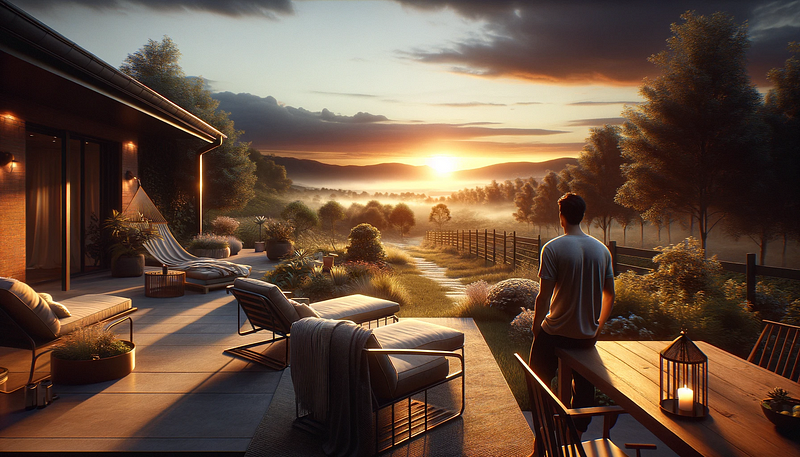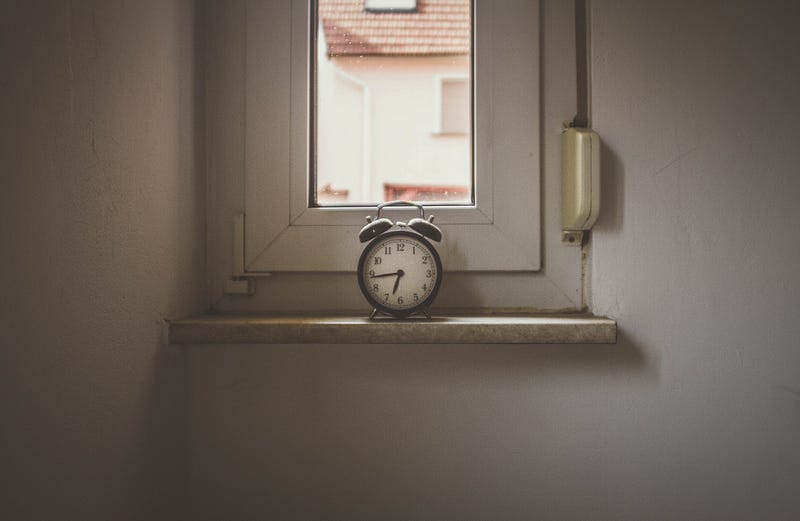# Embracing Your Unique Sleep Pattern: The Case Against Early Rising
Written on
Understanding Sleep Patterns
For ages, society has perpetuated the saying, "the early bird catches the worm." As a proud member of the "I can’t function before 10 AM" society, I often believed I was missing some vital productivity gene. However, after years of trying to force myself into the mold of a morning person, I've come to a significant conclusion: it’s largely a myth.
Throughout our lives, we've been told that waking up at dawn, savoring a cup of artisan coffee, and getting a jumpstart on the day is the key to success. But who decided that? It seems there’s an unspoken expectation that snoozing past 7 AM somehow makes you less ambitious. Spoiler alert: that's simply not accurate.
I tried everything: setting multiple alarms, putting my phone across the room, you name it. Each morning felt like a scene from a zombie film—minus the actual zombies. My brain refused to cooperate before a certain hour; it wasn’t merely sleepiness—it was as if my creativity and problem-solving skills were locked away, only to be unleashed later in the day.

Genetics and Sleep
Here’s where it gets intriguing. Research indicates that our sleep patterns are influenced by genetics. Yes, you read that right! Some individuals are naturally inclined to be morning people, while others, like me, are night owls. It’s not merely a preference; it’s biological.
So, when I attempted to transform into a morning person, I was essentially battling my own DNA. It’s akin to persuading a cat to enjoy swimming—good luck with that! We each have different peak times for productivity, and that’s perfectly acceptable.
The Night Owl Advantage
Let’s consider the other side. Night owls often face stigma, being labeled as lazy or undisciplined. However, I can attest that some of my best ideas come to me during the late hours. The peaceful ambiance of the night seems to ignite my creativity.
Historically, many brilliant minds were night owls. Think of figures like Charles Darwin and Winston Churchill; they weren't rising with the sun, yet they achieved remarkable success. Additionally, studies suggest that night owls may exhibit greater creativity and cognitive capacity compared to early risers. Take that, morning enthusiasts!
The Productivity Paradigm
We inhabit a culture fixated on productivity. It appears that if you’re not hustling constantly, you’re falling behind. However, here’s a thought: productivity isn’t solely about quantity; it’s also about quality.
I discovered that by ceasing to fight my natural rhythm and embracing my night owl tendencies, the quality of my work improved. I found myself writing better, thinking more clearly, and surprisingly, feeling happier. Isn’t happiness what we all strive for?
This conversation transcends sleep schedules; it’s about recognizing and respecting our individual needs. The standard 9-to-5 workday isn’t universal. Some of us thrive during late-night bursts of energy, while others flourish at dawn.
As remote work becomes more prevalent, it challenges the traditional work schedule for good reason. It's time to welcome a more adaptable approach to productivity—one that respects diverse lifestyles and biological rhythms.

Mental Health Considerations
Disregarding your body’s natural sleep cycle can adversely affect your mental health. I learned this lesson the hard way. Trying to conform to the morning person ideal felt as uncomfortable as squeezing into my high school jeans—depressing, to say the least.
Studies reveal that resisting your natural sleep pattern can lead to heightened stress, burnout, and even depression. Upon embracing my night owl identity, it felt as though a heavy burden had been lifted. My mood improved, along with my overall well-being.
The Bottom Line
So here’s the takeaway: if you are a morning person, I commend you—keep thriving! But if you aren’t, that’s completely fine. Embracing your natural rhythm could be one of the best choices you make for your well-being.
It’s high time we stop idolizing the early riser and begin celebrating the diversity of our sleep patterns. Whether you shine with the sunrise or come alive under the stars, the key is to find what works for you.
And if you're reading this at 2 AM because that’s when you feel most awake, more power to you! Let's ignite a discussion about this topic—share your thoughts or your own "I am definitely not a morning person" experiences in the comments. Together, we can debunk this myth, one late night (or early morning) at a time.
Ultimately, whether you rise early or thrive late, what truly matters is embracing your unique rhythm. Let’s stop trying to fit ourselves into molds that were never designed for us and instead, live in a way that genuinely suits us. Here’s to unapologetically being ourselves, regardless of the time on the clock.
In this video, the creator shares insights on how becoming a morning person transformed their life, along with practical tips to help you make the shift if you desire.
This video discusses the importance of embracing your natural sleep pattern and why you should consider becoming a morning person, from the perspective of a former night owl.